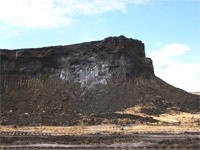
News |
- Companies Removed from UN Global Compact
- Bike Share Programs a Success
- Protection Plan for Monarch Butterfly
- BC, Quebec Lead Manitoba on Climate Change
- Protection and Planning for Ontario's Boreal Forests
- Hydro Threatens Proposed Tursujuq Park
- Climate Partnership For Ontario
- Court Cancels Sentences for Aboriginal Protestors
- U.S. Mayors Oppose "Dirty" Canadian Oil
- Climate Change at 2008 G8 Summit
- Dene Sue Alberta - Seek Protection of Rights
- Order of Manitoba to Poplar River Woman
| Companies Removed from UN Global Compact | 01 August 08 |
|
As a voluntary initiative, the UN Global Compact provides a framework for building social legitimacy of business and markets. Companies are required to align with ten principles on human rights, the environment and anti-corruption. To uphold the initiative's integrity the UN Global Compact removed firms including Ernst & Young, L'Oreal Argentina, and Mitsubishi Motors Cebu Corporation. Currently, 184 of the 5,982 participants are at risk of being de-listed for missing deadlines. Tembec Inc, which operates the pulp mill in Pine Falls Manitoba, is among the companies de-listed in June 2008. The company is currently preparing to report to the UN to continue their commitment to the Global Compact. View June 25, 2008 UN Global Compact articleView July 1, 2008 Business Green article View July 22, 2008 Ethical Corporation article View June 24, 2008 Overview of De-listed Companies (PDF) Visit United Nations Global Compact website Source: UN Global Compact, Business Green, and Ethical Corporation |
|
 Print version Print version |
Top |
| Bike Share Programs a Success | 28 July 08 |
 Bike sharing programs have become a popular option for many major cities, and are creating a movement toward green, livable cities. Bike sharing programs have become a popular option for many major cities, and are creating a movement toward green, livable cities.Paris, a city known for traffic congestion, is celebrating the one-year anniversary of Vélib' bike share program. Subsidized by advertising, the bikes are cheap to rent and highly accessible with more than 1,450 self-service rental stations located every 300 yards throughout the city. In the first year, there have been 27.5 million trips in the city of roughly 2.1 million people, many of them for daily commutes. On average, there are 120,000 trips a day. Copenhagen, Vancouver, Barcelona, Milan, Stockholm, Washington D.C., and Amsterdam have all implemented bike share programs. New York City has recently announced its intention to investigate the feasibility of instituting such a program to reduces vehicle emissions and ease congestion. View July 16, 2008 World Changing articleView July 13, 2008 New York Times article Visit Velib' Official Website View July 9, 2008 Streets blog article View July 9, 2008 New York Times Blog article View July 7, 2008 New York City government article (PDF) View June 20, 2008 Chicago Tribune article Sources: World Changing, New York Times, Vélib' Website, Streets Blog, Government of New York City, Chicago Tribune |
|
 Print version Print version |
Top |
| Protection Plan for Monarch Butterfly | 28 July 08 |
 Protection of Monarch butterfly migratory routes and winter habitats is the focus of a new tri-national plan between Canada, Mexico and the United States under the Commission for Environmental Cooperation (CEC) under NAFTA. Protection of Monarch butterfly migratory routes and winter habitats is the focus of a new tri-national plan between Canada, Mexico and the United States under the Commission for Environmental Cooperation (CEC) under NAFTA.The North American Monarch Conservation Plan identifies deforestation of winter habitats in the south among main risk factors to Monarch flyways and breeding habitats. Current conservation actions in each country are also summarized. The plan provides a detailed overview of the monarch's lifecycle and unique multigenerational migratory pattern - considered an endangered biological phenomenon. The CEC website offers an interactive Google Earth map of the Monarch's range. In other initiatives the Monarch Butterfly Biosphere Reserve in Mexico was listed a World Heritage Site by the United Nations Educational, Scientific and Cultural Organization's (UNESCO). The reserve protects over wintering colonies of Monarch butterflies that travel thousands of kilometers from breeding locations in the US & Canada each year. View June 27, 2008 Commission for Environmental Cooperation articleView June 27, 2008 CEC, North American Monarch Conservation Plan View July 10, 2008 Fox News article Visit United Nations Educational, Scientific and Cultural Organization website Sources: Commission for Environmental Cooperation, Fox News, Environmental News Service, UNESCO |
|
 Print version Print version |
Top |
| BC, Quebec Lead Manitoba on Climate Change | 24 July 08 |
 In 2007 Manitoba was second in the country on its plans to tackle climate change. This year, another province nudged Manitoba down the list; its plan is now rated as 'good', along with Ontario's plan, while Quebec's plan is rated as 'very good' and British Columbia tops the list with a rating of 'best'. Manitoba released its new climate change plan April 2008. In 2007 Manitoba was second in the country on its plans to tackle climate change. This year, another province nudged Manitoba down the list; its plan is now rated as 'good', along with Ontario's plan, while Quebec's plan is rated as 'very good' and British Columbia tops the list with a rating of 'best'. Manitoba released its new climate change plan April 2008.The David Suzuki Foundation (DSF) report, Provincial Power Play: Breaking Away from Federal Inaction on Climate Change, was released July 16, 2008 at the Council of the Federation meeting in Quebec City. The report looks at provincial and territorial action on climate change, compares their greenhouse gas emissions, assesses their climate change plans and evaluates their records. Manitoba Wildlands contributed information and analysis for evaluation of Manitoba's climate change plan. The DSF evaluation also highlights the fact that Canada's federal climate change plan does not measure up. It argues most provinces have better climate change plans than our federal government, stronger GHG emissions reduction targets and stronger policies to achieve them. The David Suzuki Foundation is calling on the federal government to follow the lead of the provinces and set strong, national standards across Canada. View July 16, 2008 David Suzuki Foundation press releaseView July 2008 David Suzuki Foundation report, Provincial Power Play: Breaking Away From Federal Inaction on Climate Change (PDF) View Manitoba's 2008 climate change plan, Beyond Kyoto: Manitoba's Green Future View July 16, 2008 Globe and Mail article View July 16, 2008 Canwest News Service article Visit Manitoba Wildlands' Manitoba Climate Initiatives page for more information on David Suzuki Foundation report and evaluation Sources: David Suzuki Foundation, Globe and Mail, Canwest News Service |
|
 Print version Print version |
Top |
| Protection and Planning for Ontario's Boreal Forests | 23 July 08 |
 Ontario Premier Dalton McGuinty announced July 14, 2008 that the provincial government will work with First Nation communities to protect an unprecedented 225,000 square kilometres (22.5 million hectares) of boreal forest in the province's far north. As envisioned, the future protected areas will be larger than Canada's Atlantic provinces combined. Ontario Premier Dalton McGuinty announced July 14, 2008 that the provincial government will work with First Nation communities to protect an unprecedented 225,000 square kilometres (22.5 million hectares) of boreal forest in the province's far north. As envisioned, the future protected areas will be larger than Canada's Atlantic provinces combined.The initiative, being undertaken as part of Ontario's Far North Planning initiative, will:
First Nations leaders in Ontario praised the government's approach. "This is good news for the people of Nishnawbe Aski, as it will require that First Nations be fully involved in resource development in our traditional territory," said Nishnawbe Aski Nation (NAN) Grand Chief Stan Beardy. Scientists and Canadian environmental groups expressed their strong support for Premier Dalton McGuinty's science-based leadership. Janet Sumner, Executive Director of CPAWS Wildlands League said, "Today's announcement fulfills the Premier's promise to protect the Boreal Forest by doing Land Use Planning before large scale industrial development." View July 14, 2008 Government of Ontario press release (PDF)View July 14, 2008 Environmental News Service article View July 15, 2008 Globe and Mail article View July 15, 2008 Winnipeg Free Press article View July 14, 2008 Nishnawbe Aski Nation (NAN) press release View July 14, 2008 CPAWS Wildlands League press release (PDF) Sources: Government of Ontario, Environmental News Service, Globe and Mail, Winnipeg Free Press, Nishnawbe Aski Nation, Ontario Regional Chief Angus Toulouse, CPAWS Wildlands League |
|
 Print version Print version |
Top |
| Hydro Threatens Proposed Tursujuq Park | 23 July 08 |
|
Tursujuq provincial park along Nunavik's eastern Hudson's Bay coast has yet to be permanently protected but environmental groups, including the Canadian Parks and Wilderness Society, are calling for an expansion. The proposed addition is more than 10,000 square kilometers in size and includes the entire Nastapoka River's headwaters and chain of inland lakes. Hydro Quebec has no current plans but is interested in future hydroelectric opportunities along Little Whale River and the Nastapoka River, which flow in and around Tursujuq. A hydro dam on the Nastapoka River could produce 1,000 megawatts of power - but would require power lines and access routes to cut through the park. Tursujuq will be Nunavik's third provincial park and is located along the transition zone between the boreal forest and tundra. Endangered beluga whales gather in the Nastapoka River's estuary during summer and it is home to a population of rare landlocked salmon. View July 11, 2008 Nunatsiaq News articleView May 8, 2008 Northern Waterways article View Quebec Government Provisional Master Plan - Parc national des Lacs-Guillaume-Delisle-et-a-l'Eau-Clair (PDF) View National Parks of Quebec Website - Parc national des Lacs-Guillaume-Delisle-et-a-l'Eau-Clair Project View June 20, 2008 Nunatsiaq News article Sources: Nunatsiaq News, Northern Waterways, and Government of Quebec |
|
 Print version Print version |
Top |
| Climate Partnership For Ontario | 23 July 08 |
 Ontario is taking steps to fight climate change with membership in the Western Climate Initiative (WCI). Ontario is taking steps to fight climate change with membership in the Western Climate Initiative (WCI).Ontario is the newest member of Western Climate Initiative, which includes Manitoba, British Columbia, Quebec and seven U.S. states. Launched in 2007, the WCI is the largest green partnership working to design a cap and trade system for carbon credits and to reduce greenhouse gas emissions at least 15 percent below 2005 levels by 2020. (Each jurisdiction's targets to be met.) Seventy-five percent of Canada's population lives in Western Climate Initiative member provinces. Ontario Premier Dalton McGuinty said his province is "proud to be welcomed into this important organization of climate-change leaders." View July 18, 2008 News Wire articleView July 21, 2008 Sustainable Business article View July 14, 2008 Environmental News Service article View July 14, 2008 Grist article Sources: News Wire, The Globe and Mail, Sustainable Business, Environmental News Service, Grist |
|
 Print version Print version |
Top |
| Court Cancels Sentences for Aboriginal Protestors | 15 July 08 |
 First Nations in Ontario and across the country welcomed the July 7, 2008 release by the Ontario Court of Appeal of its reasons for its decision, which ruled that the sentences imposed on Aboriginal protestors were "too harsh". First Nations in Ontario and across the country welcomed the July 7, 2008 release by the Ontario Court of Appeal of its reasons for its decision, which ruled that the sentences imposed on Aboriginal protestors were "too harsh".Earlier this year, six members of the Kitchenuhmaykoosib Inninuwug (KI) First Nation near Thunder Bay and two members of the Ardoch Algonquin First Nation in eastern Ontario were jailed when they protested private companies' activities on their traditional lands. The panel of three judges said jailing native leaders emphasized the "estrangement of aboriginal peoples from the Canadian justice system" and concluded that jailing First Nations leadership in disputes between the Crown and Aboriginal people should only be used as a last resort. The appeals court also dismissed thousands of dollars in fines against the protesters, noting that the bands had already been subject to huge bills by the legal process. Ontario's Northern Development and Mines Minister and Aboriginal Affairs Minister also supported the appeals court decision. View July 9, 2008 Globe and Mail editorialView July 7, 2008 Nishnawbe Aski Nation (NAN) press release View July 7, 2008 Canadian Press article View July 7, 2008 Thunder Bay Source article View Friends of Kitchenuhmaykoosib Inninuwug (KI) blog View July 7, 2008 Ontario Court of Appeal ruling in the case of Frontenac Ventures Corporation v. Ardoch Algonquin First Nation, 2008 (DOC) View July 7, 2008 Ontario Court of Appeal ruling in the case of Platinex Inc. v. Kitchenuhmaykoosib Inninuwug First Nation, 2008 (DOC) View previous Manitoba Wildlands news: April 2, 2008, August 9, 2006, June 29, 2006, May 18, 2006, March 1, 2006 Sources: Canadian Press, Friends of Kitchenuhmaykoosib Inninuwug, Nishnawbe Aski Nation |
|
 Print version Print version |
Top |
| U.S. Mayors Oppose "Dirty" Canadian Oil | 15 July 08 |
 The recent U.S. Conference of Mayors meeting in Miami adopted a resolution that urges cities to avoid using energy from Canadian tar sands. The recent U.S. Conference of Mayors meeting in Miami adopted a resolution that urges cities to avoid using energy from Canadian tar sands.Mayor Kitty Piercy of Eugene, Oregon introduced the resolution that supports environmentally sustainable energy not from "dirty" tar sands. It calls for purchasing standards and guidelines to track the life-cycle impact of different fossil fuels. "In the last few years, U.S. mayors have come out as leaders on environmental initiatives, specifically in the fight to stop global warming," said Susan Casey-Lefkowitz a senior attorney at the Natural Resources Defense Council, NRDC. Oil extraction from tar sands releases three times as much greenhouse gases as conventional oil and threatens Canada's Boreal forest. Production from the Alberta oilsands is projected to triple from 1.2 million barrels to 3.5 million barrels a day by 2015. The US Mayors Conference also passed a resolution to phase out use of bottle water in their city operations. View June 23, 2008 CNN articleView June 23, 2008 CBC article View June 23, 2008 The Star article View June 28, 2008 Environment News Service article View June 30, 2008 Sustainable Business article View June 24, 2008 Canada.com article View Resolutions from U.S. Conference of Mayors 76th Annual Meeting, Miami 2008 Sources: CNN, CBC, The Star, Environment News Service, Canada.com, U.S. Conference of Mayors |
|
 Print version Print version |
Top |
| Climate Change at 2008 G8 Summit | 15 July 08 |
 Leaders from the world's developed countries met July 7-9, 2008 in Hokkaido, Japan for the 2008 G8 Summit. Leaders from the world's developed countries met July 7-9, 2008 in Hokkaido, Japan for the 2008 G8 Summit.Climate change and the environment were main themes of the meeting but the leaders were widely criticized for failing to deepen their commitments to greenhouse gas reductions with mid term targets. The G8 leaders called for a global reduction in greenhouse gas emissions by at least 50% by 2050, but also didn't specify a base year (for example, 50% of 1990 emission levels). Yvo de Boer, who leads the UN negotiations to forge a new climate change treaty, was critical of the lack of a baseline for the 50% reduction target, and that the G8 said nothing about making that goal part of a legally binding convention. On the final day of the Summit, eight other "major developing economies" from developing countries China, India, Indonesia, Brazil, Mexico and South Africa joined the G8 leaders. These countries refused to accept the G8's vague long-term targets. In a statement, developing nations called on developed countries to take the lead in adopting deep emissions reductions targets. They pledged developing countries would take on quantitative emissions reductions as long as they were facilitated through financing and support for technology transfer from developed nations. View July 9, 2008 Chair's Summary for 2008 G8 Summit in Hokkaido, JapanView July 9, 2008 Reuters article on Planet Ark View July 9, 2008 Associated Press article View July 9, 2008 statement from South African Minister of Environmental Affairs and Tourism, Climate Change discussions during G8 and Major Economies Meeting in Japan View July 10, 2008 China Daily article View more Manitoba Wildlands coverage of the 2008 G8 Summit Sources: G8 Climate Summit, Reuters, Associated Press, G5 Developing Countries, CBC, China Daily |
|
 Print version Print version |
Top |
| Dene Sue Alberta - Seek Protection of Rights | 14 July 08 |
 The Chipewyan Prairie Dene First Nation (CPDFN) filed the most recent of three First Nation lawsuits against the Alberta government. All demand meaningful consultation on oil sands development and protection of their Treaty Rights. The Chipewyan Prairie Dene First Nation (CPDFN) filed the most recent of three First Nation lawsuits against the Alberta government. All demand meaningful consultation on oil sands development and protection of their Treaty Rights.CPDFN lawsuit in June 2008, came after the Alberta government leased land in the heart of their traditional territory around Christina and Winifred Lakes to MEG Energy Corporation. The First Nation asserts the government did not uphold their constitutional duty to consult with them on the Christina Lake Regional Project Phase 3. "For years, we have told Alberta and industry of our concerns about the erosion of our rights through ever-increasing development and the lack of proper planning for resource development. Yet Alberta has done almost nothing to change the way they regulate this development. If anything, Alberta has sped up the pace of its approvals," said Chief Vern Janvier of CPDFN. Beaver Lake Cree Nation and the Woodland Cree have filed similar lawsuits. The Courts rulings will have implications for First Nations and all resource developers in the oil sands and across Alberta. The cases also raise the need for regional land use planning and proper impact assessment of existing and planned development. View June 15, 2008 International Continental Cry articleView May 20, 2008 International Continental Cry article View May 21, 2008 Climate and Capitalism blog post View June 16, 2008 Newswire article View Oil Sands Truth article View October 3, 2007 CBC article Visit Beaver Lake Cree Nation Visit Chipewyan Prairie First Nation Sources: International Continental Cry, Newswire, Oil Sands Truth, CBC, Beaver Lake Cree Nation, Chipewyan Prairie First Nation |
|
 Print version Print version |
Top |
| Order of Manitoba to Poplar River Woman | 08 July 08 |
 Sophia Rabliauskas of Poplar River First Nation is one of twelve Manitobans to be inducted into the Order of Manitoba this year. The investiture ceremony takes place July 10th, 2008 at the Manitoba Legislature. Sophia Rabliauskas of Poplar River First Nation is one of twelve Manitobans to be inducted into the Order of Manitoba this year. The investiture ceremony takes place July 10th, 2008 at the Manitoba Legislature. "It feels great to be recognized," Rabliauskas says. "It's good because it gives the whole community of Poplar River the support we need and it's also bringing a sense of pride to the community and the people." Ms. Rabliauskas and Poplar River First Nation have been working for over a decade to ensure their traditional lands are protected from development and the people's right to determine what happens within these lands is always honored. Poplar River First Nation secured interim protection by regulation for the majority of its traditional lands in 1999. Poplar River's comprehensive land protection and management plan, the Asatiwisipe Aki Lands Management Plan, was completed in 2005. The community awaits final steps by the Manitoba Government to permanently protect their traditional lands. "It's been a long process and the work continues to protect the land," she says. "We got temporary protection but what we really need is full protection of this land, and we're busy negotiating with the provincial government now to get that." View July 11, 2008 Winnipeg Sun article View May 12, 2008 Lieutenant Governor of Manitoba press release View May 22, 2008 First Perspective article Visit Poplar River First Nation's website and read more about Sophia Rabliauskas and Poplar River First Nation Sources: Lieutenant Governor of Manitoba, First Perspective, Poplar River First Nation |
|
 Print version Print version |
Top |


 RSS Feeds:
RSS Feeds: